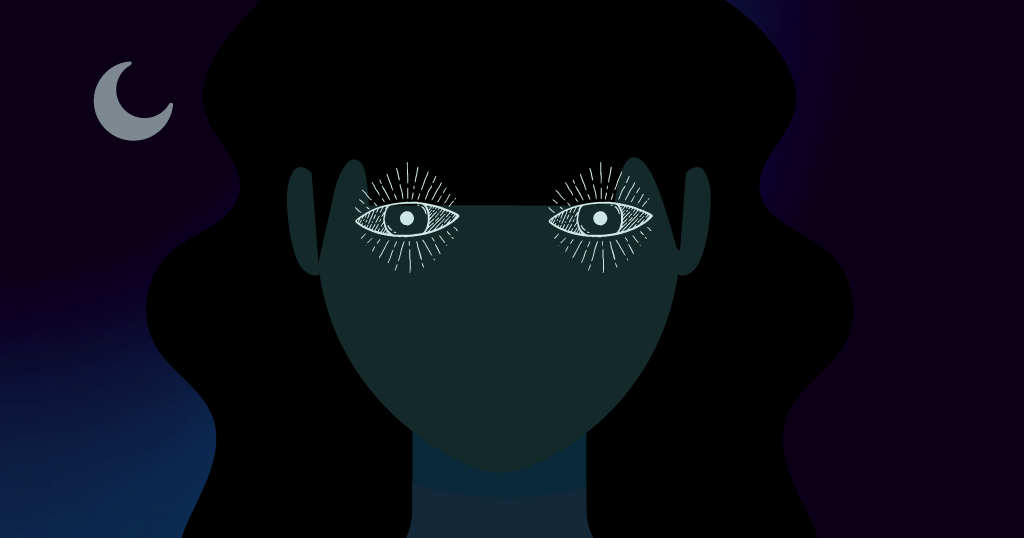Last updated April 2023.
Basically a crushing depression till 31.
My depression lasted from junior high until I was about 31. I had concluded by ninth grade that it was not event- or environment-based. At around 30, after 18 months on antidepressants, I realized they were a disaster for me and I looked elsewhere for solutions.
Gluten-free like a miracle
A few months later, and after two years of unemployment due to my mental state, I found success with a gluten-free diet. At first I thought that all my problems had been solved, and it truly was the end of my despair, but if I had to go back to my mood in those early “I’m cured!” days, it would terrify me. But at the time, it was so much better than my norm that it was a miracle.
Lots of tinkering after going gluten-free
It took about two more years of tinkering with my diet and supplements before I realized I had gone an entire week without a single dip in mood. And with no help from any doctor, thank you very much, although they occasionally were of use on other issues. Just a lot of internet searching and a few alternative health books.
Following the logic that since celiac disease (for which a gluten-free diet is the solution) results in malabsorption and thus nutritional deficiencies, that my health problems were caused by nutritional deficiencies, I went in that direction, and with a few exceptions stayed on that road for a very long time. Far too long, really, but at a certain point the brain fog hemmed me in.
Probably not quite the answer
Now I believe that I was missing about half the puzzle. I think that the cause of my improvement was quitting the ultra-inflammatory gluten (and later dairy) while at the same time escaping a moldy environment, without even knowing it.
I had moved to a new, non-water-damaged home, completely replaced my wardrobe, and put my possessions in storage. As I result, I escaped exposure to items contaminated from previous moldy domiciles. I was also taking bentonite clay, which among other things binds to mycotoxins, several times a day.
I then promptly moved into a series of badly maintained, smelly, shoddy buildings and at the same time began working in a badly-maintained, smelly office building built in 1923. Although the depression never returned, within two years I had developed a walloping fatigue.
Don’t panic; this list doesn’t necessarily apply to you
Here’s a list of the supplements/treatments/practices that definitely had an effect on my depression, which is about one-tenth of what I actually tried. Mind you, I never took ALL of these at the same time, and only take a few of them now, on occasion.
- Quit gluten.
- Quit dairy. Resumed when corrected zinc deficiency.
- Calcium/magnesium: 1000/500 per day at first? Maybe more.
- Zinc: 50 mg/day for about a year, then cut back. This had the most noticeable effect of all the supplements. After a few months on it, I could eat dairy again without it lowering my mood. (The casein in dairy binds with zinc.)
- Iron: Varying amounts. (Edit July 2022: It took me YEARS to figure out that beef spleen supplements are a million times more useful than iron for me.)
- B-complex: Started with B-50 3x/day. Plus more of the following B vitamins, which B-complex doesn’t have enough of, as they are too expensive for the manufacturer. Compare the various RDA percentages on the B-complex label to get an idea of the different amounts.
— Biotin: 1-2,000 mcg
— Folic acid: 400-800 mcg. See note below about newer, better form.
— B12: 1-2,000 mcg. ” ” - Vitamin D3: 2,000 IU/day. Helped mood a bit, but mostly sleep. I should’ve tried a lot more but at the time the “experts” said that amount was pushing it.
- Omega-3 EFAs. I took a lot of these for several years.
- Treated for hypothyroidism. Zinc helped this, as did low-goitrogen diet, Armour Thyroid for 18 months, and acupuncture, which I tried after I got tired of being slave to a prescription medication. (It has been used for almost 100 years and is derived from pig thyroid.) After about 15 treatments in nine weeks with an M.D./D.O.M., I was able to stop the Rx.
- Light therapy in winter for 30 minutes in morning. For me it prevents plummeting mood, insane carb cravings, zombie brain, and near-total insomnia.
What affected my mood for a long time but no longer
Low zinc or B vitamins
If I take a whole lot of something that competes with zinc and/or B vitamins — for example, my recent experiments with huge doses of Ca/Mg for energy — I’ll have to take those supplements to keep my mood from falling.
Still affecting my mood
Winter: Seasonal affective disorder / SAD
I finally moved 7.5 degrees latitude further south in order to get more sun. I always hoped that getting my vitamin D3 levels up would eventually fix this, but even after a summer baking in the hot desert sun, it never did. I also long ago developed a nasty reaction to D3 supplements, so that’s out. Ideal results for the 25(OH)D test are supposedly 50-80 nmol/L, but I can’t get above 20 nmol/L.
Also, I have noticed that bright light therapy doesn’t work if I do it after 8 a.m., whereas for the first several years it worked as long as I did it by 9 a.m.
Vicodin
(Demerol, however, is lovely.) Not that these come my way much. I just noticed the effects the one (Vicodin) and two (Demerol) times I was prescribed them.
Not getting enough calories
I’ll feel it the next day.
Notes
- I did not know until 2012 about the limitations of folic acid and B12 cobalamin/cyanocobalamin supplements (as opposed to methylfolate and methylcobalamin). I wonder if using those better supplements would have sped up my progress.
- I’ve never taken a whole lot of things at once, as it makes it difficult to figure out what the heck is doing what, I find it overwhelming and annoying, and I just can’t digest all that much.
- I continued to experiment a great deal with supplements for many years, but not for the depression end of things.
When this content was published
The content on this page was posted in February 2012 and updated in July 2022 and April 2023.






Marjorie, so are you cured through avoidance of gluten and mold? (not sure if this was the update you mention above in 2017). thanks!
I would say that a major reduction in inflammation caused by mold exposure and gluten got me out of the god-awful misery of that depression in April of 98 and that it was controlled after another two years of tinkering. Another person exposed to higher levels or different combinations of inflammagens might not have the same luck. FYI I spelled inflammagen correctly on the first try.
Even as my health tanked in other ways, I could always keep my mental state from returning to that earlier shite level — thank the lord, or I’d be dead. That is confusing. It’s as if I managed to keep inflammation out of my head even as it worsened in my body… I really don’t know how that works.
Thanks for that,
I have done many of the things you have tried with varying degrees of success, they all helped a little. Certainly the B12 and folic acid vs Methylcobalamin and MTHF are factors. I have not found that the methylcobalamin and MTHF have greatly helped, but I have found that Cyano and folic acid impede progress. I found that cyanocobalamin actually causes depression for me and once I isolated it from the multivitamins and took cyano on its own I noticed a depressive mood almost immediately on taking it.(30 minutes).
Unfortunately I did not find the opposite effect from Methylcobalamin, but if you are taking B12, then methylcobalamin is the only choice in my opinion. I have heard of many people noticing positive changes taking MTHF especially those with the common gene mutation that prevents conversion of folic acid (a synthetic version of folate).
The biggest thing for me was probiotics. The effect on my two year depression was almost immediate (18 hours). I have found though that not all probiotics are created equal, but if you want to fix depression for good that is where I would look. I also believe that almost all depression is “caused” by antibiotics (multiple doses) and the other sources of bacteria killing chemicals eg chlorine, fluoride, antibacterial soaps and toothpastes. This theory is strongly supported by studies and also mainstream psychiatry which is heavily supported by the serotonin theory of depression. I believe the serotonin theory of depression is mostly correct, and serotonin is mostly created in the gut by gut bacteria. This is also the basis for the GAPS diet which has been very successful in treating psychiatric illness. I have not followed the GAPS diet myself but I believe in its efficacy, and probiotics are a big part of that.
Another thing that has helped with my sleep and mood (this will almost sound silly) is wearing yellow glasses at night. The glasses cost about $10. I wear them from about 8pm onwards and dont expose myself to any light after 8pm without the glasses. I sleep well and wake up refreshed. You can look it up on the net, it actually works and I have recommended this to others, it helps those that need it.
Your experience with probiotics is very interesting. I have also tried to focus on the larger picture of what causes depression and my experience over the past two years has been on inflammation — in my case caused by mold poisoning; years of a diet heavy in wheat (like all Americans), which is naturally inflammatory; and Roundup in the food supply. Most of the things that helped my depression, even Zoloft, turned out to be anti-inflammatory. (I think that’s why I reacted to it in 24 hours.)
Mold patients are also interested in probiotics because mold toxins destroy the gut biome even as you detox. However, in my case, probiotic supplements stop me sleeping, and some worry that the strains in supplements are too limited. Some people resort to making their own fermented foods — kimchi, etc. — to avoid pasteurization, but I do not have that kind of devotion.
BTW my understanding is that the medical community has moved away from the neurotransmitter model of depression, as it did not seem to explain the majority of cases. However, doctors continue to explain it that way to their patients.
I also use the blue-blocking or dimming function on my e-readers at night. Definitely helps me get to sleep.
This is spam, but it made me laugh:
the next time I read a blog, I hope that it doesnt disappoint me as much as this one. I mean, I know it was my choice to read, but I actually thought youd have something interesting to say. All I hear is a bunch of whining about something that you could fix if you werent too busy looking for attention.